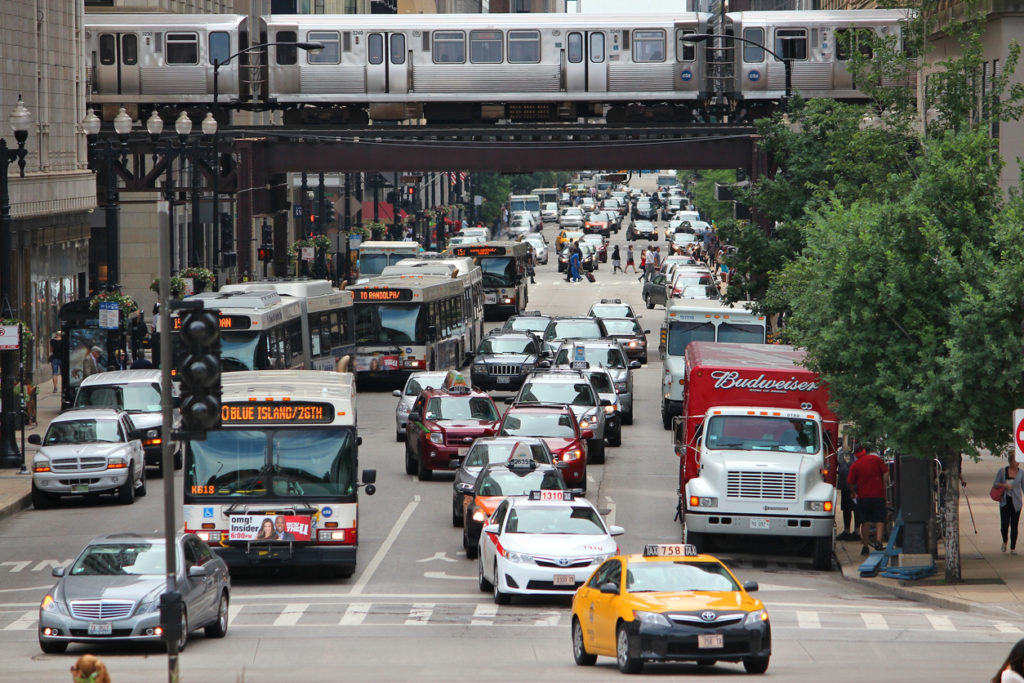Illinois Car Accident Laws
Car Accident,Personal Injury - March 11, 2019 by Horwitz, Horwitz & Associates
Every state has different laws that may come into play in a car accident case. Illinois drivers should know what to expect after a car accident concerning insurance claims, grounds for lawsuits against negligent drivers, and how to prove fault for an accident.
Who Is at Fault?
Illinois uses a fault system for handling car accidents. This means an injured driver must prove another driver caused his or her damages in some way to file a claim against that driver’s auto insurance policy. A driver could absorb liability for a car accident by committing a moving violation, like running a stop sign, speeding, driving under the influence, or many other possible forms of negligence behind the wheel.
Since every driver could potentially face liability for a car accident, Illinois requires all drivers to buy and maintain auto insurance policies that offer liability coverage in the event the policyholder causes an accident with another driver.
Minimum Insurance Requirements
Every Illinois driver must purchase an individual auto insurance policy that provides different types of coverage in the event the policyholder causes an accident.
- $25,000 or more in coverage for bodily injury or death of a single person in an accident the policyholder caused.
- $50,000 or more total accident coverage for all bodily injuries and deaths caused by the policyholder.
- $20,000 or more in property damage coverage.
Illinois drivers usually have the option to purchase additional coverage beyond these minimum requirements, and this is usually a wise option. More extensive coverage and higher coverage limits inherently leads to more expensive premium payments, but in exchange the policyholder has much more flexibility if he or she causes an accident with another driver. Each driver should strive to find a balance of affordability and protection when shopping for auto insurance.
Hit and Run and Reporting Accidents
Illinois law requires all drivers to report any accident that results in any injury, death, or significant property damage. Even if a driver only suffers a minor injury, it is always best to report these accidents to the police. The drivers may be able to settle the matter between them without escalating to legal action, but having a report on file is always best. Additionally, failure to report an accident as required by Illinois law may lead to a hit-and-run violation that entails severe legal penalties. If you were a victim in a hit and run accident, contact our team of Chicago personal injury lawyers.
Proving Fault
Illinois’ fault-based system requires drivers to establish fault to file insurance claims against at-fault drivers’ auto insurance policies. A claimant must prove that the at-fault party owed a duty of care to the plaintiff but violated that duty in some way. For example, drivers have a duty of care to refrain from driving under the influence. A distracted driver looking at a cell phone instead of the road violates this duty of care. If the distracted driver hits another driver, the distracted driver is liable for the resulting damages.
Sometimes an at-fault driver’s insurance coverage is sufficient to settle a car accident claim. If the victim only suffered minor injuries and property damage, the at-fault driver’s auto insurance may provide enough coverage. However, the insurance carrier may try to assign some fault for the accident to a claimant. Illinois follows a comparative negligence law, meaning that a plaintiff may still recover damages if he or she was partially to blame for causing them, but he or she will lose a percentage of the settlement equal to his or her fault percentage for causing the accident.
Ultimately, every Illinois driver should purchase enough insurance coverage to feel confident in the event of an unexpected accident. Drivers should always report accidents that result in injuries, deaths, or significant property damage to avoid severe legal penalties. A Chicago car accident attorney can help a client prove an at-fault driver’s liability for an accident and help the client recover compensation for his or her damages beyond an insurance claim if necessary.
Read More:
https://www.horwitzlaw.com/faq/motor-vehicles-accidents/what-are-the-pedestrian-laws-in-illinois/
How to Determine Fault When Dangerous Road Conditions Cause Accidents



